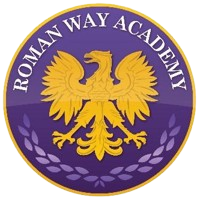Computing
How we teach, learn and assess Computing at Roman Way Academy
We aim to enable our pupils to become confident, responsible and creative users of technology, who have a good understanding of computers, how computer systems work, and how they are designed and programmed. Children will learn to think logically, analyse and persevere to solve problems. They will learn how to keep themselves and others safe when using technology.
In the EYFS, children learn to recognise that a range of technology is used in places such as homes and schools. Children are taught to select and use technology for particular purposes, such as playing games, listening to stories and music, controlling a toy or creating artwork. Opportunities for the use of technology are an integral part of each area of learning. Unplugged activities are planned which develop children’s listening skills, curiosity, creativity and problem-solving skills.
At Roman Way Academy, both plugged and unplugged activities are planned to support pupils’ understanding of underlying concepts in computing. We use Purple Mash units as a starting point for planning, as well as other online resources. The school follows the Purple Mash Progression of Skills document. Computing is taught as a discrete subject and children have opportunities to use their computing skills in other subjects as appropriate.
The school has the following technology:
- Chromebooks;
- iPads;
- Cameras;
- PCs in Ice Zones;
- Data loggers;
- Programming equipment such as Beebots
How do we teach children to be safe online?
Online safety is embedded within our curriculum. The school provides a comprehensive curriculum for online safety which enables pupils to become informed, safe and responsible.
The curriculum is flexible and can respond to any immediate online safety issues and risks as they emerge.
It is necessary for pupils to develop skills of critical awareness, digital resilience and good online citizenship to enable them to use internet, mobile and digital technologies safely and responsibly.
Pupils are taught to recognise the creative, collaborative, cultural, economic and educational opportunities provided by the internet, mobile and digital technologies.
Additionally, assemblies and email communications are used to share online safety information.
How do we assess in Computing?
Computing is assessed in a variety of ways. When planning, teachers use the progressive skills ladder as well as the long-term overview to keep coverage consistent and interlocking to previous learning. Teachers will start lessons with a retrieval question to assess the memory of prior learning as well as an opportunity to link previous learning in long-term memory to the new knowledge acquired in the upcoming lesson. Lessons will also have a learning objective, allowing assessment at the end of the lesson to be clear and concise. Class teachers reflect upon the children’s learning to assess their understanding and skills. Other types of formative assessments of learning are also used as part of the Roman Way assessment strategy. Termly assessments are recorded on Insight and progress is reported to parents at the end of each academic year as part of the annual report to parents.
Useful links:
Purple Mash - Watch our video on how to use this for computing and for other subjects too!
